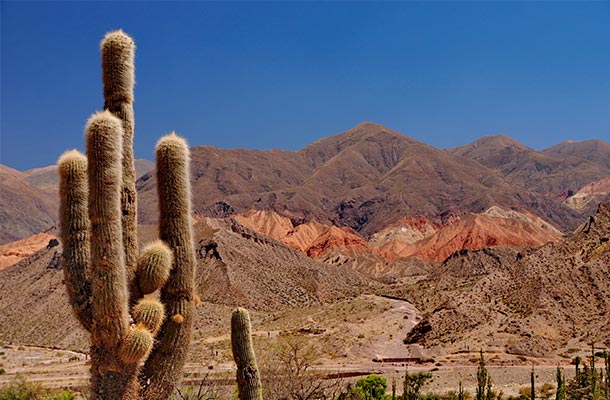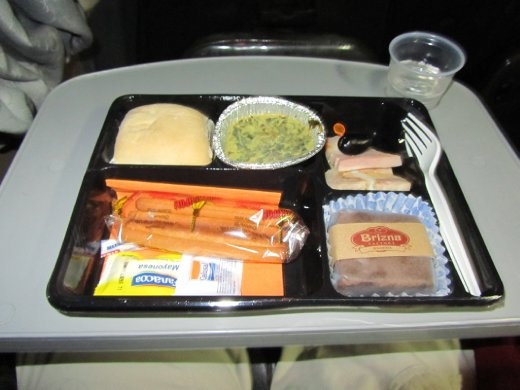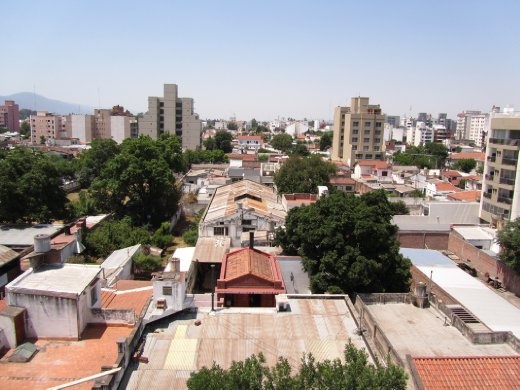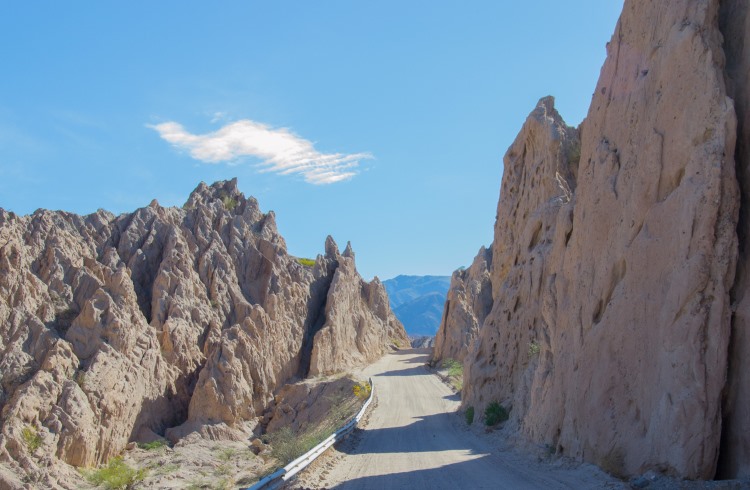The Long Haul to Salta
The places we see are not always designed to make us feel comfortable. For Keith, neither was the journey from Buenos Aires to Salta.
 Photo © iStock/DavidStorm
Photo © iStock/DavidStorm
"I'm going to Tucumán," says Martín, the man sitting next to me in the double-decker bus' top row. He is slight of frame with inky black hair, a touch of the Andean blood, so prevalent in Argentina's northwest provinces, graces his features. We slouch in our comfy cama suite chairs and watch the throng of passengers swirling among the row of buses at Buenos Aires' Retiro bus terminal. All the seats behind us are empty, but rather than being annoyed that we are forced to sit next to each other I am grateful for his company.
I'd just parted ways with a good friend and been swindled for 30 pesos by a taxi driver who tried to strip me of 45. To say I was not looking forward to an 18-hour bus ride...well, that would be perfectly accurate. I was truly on my own and heading to Salta, the destination I chose for my first one-month trip in what was to be a string of eight such trips. I don't know what could have prepared me for what I saw along the way (and I'm not talking about the two hours of Bon Jovi videos).
Within moments of boarding the bus it was backing out of the station. Lumbering through lanes of traffic heedless of other vehicles, pedestrians, or laws, I witness suddenly destitute neighborhoods with dirt-packed streets. We amble past Aeroparque and through the suburbs as the bus whines and rattles. Martín and I communicate through a combination of Spanglish and pantomiming. I show him photos of my wife, family, and friends, and attempt to describe the northwoods of Wisconsin. I then feel the now common swelling in my sinuses, like a warm breeze before a storm, that precipitates tears. Martín works as a programmer at a bank in Buenos Aires, and he's going to Tucumán to visit his sister and her newborn.
We glide through heavy traffic and past a Wal-Mart of all places. And then the city is gone. It's familiar countryside reminiscent of plains that stretch away from major rivers in the United States. About an hour later, we pull off the road into a sketchy dirt parking lot. The bus is loaded with nondescript brown packages from a nondescript building. I briefly wonder about drugs and then shake my head at the silliness of the thought.
It's full dark when we pull into Rosario, one of Argentina's largest cities. Beneath the bridges and overpasses rough-and-tumble shanty cities sprout like mushrooms. They've been cobbled together with detritus: rotten and decayed wooden boards, rusting corrugated metal, sticks. It's a quarter past ten and a mother directs two children in the placement of a new stick on the roof. Even the dark of night couldn't help the city keep its secrets.
The bus is considerably more packed after picking up passengers in Rosario. Dinner arrives shortly and I'm generally perplexed by the array.

I watch Martín scarf down the greenish custard and then test a nibble. I speedily move on to breadsticks and try to sleep through a Bon Jovi video marathon. The familiar yet alien landscape is blotted out by the night, and only our shared culture of technology, a few pricks of light on the black canvas, remains. I recline the seat 180 degrees and plunge into a fitful sleep.
I awake just after dawn somewhere in northwest Argentina. The landscape has given way to scrub brush, gnarled trees, and haze. Spare tires and shreds of tarp dot the shoulders of the road like kilometer markers. A chicken pecks in the dust. Massive nests hang in the skeletal trees. It's not beautiful, it just is. Whether by little effort or little success, man has made little dent along this stretch of Argentina.
The ever-present hum of the bus engine doesn't disguise the sound of hot flesh squeaking on the seats as people shift in their sleep. Someone has done evil in the bathroom below me. We enter the town of Santiago del Estero. I hardly breathe as we cut through its streets. It is a ruin of crumbling buildings and dirt roads choked with trash and the occasional dead dog. The beautiful dawn light is powerless here. In the distance, greasy black smoke roils skyward that I later learn to be burning trash. I think that my virgin eyes have finally fled.
Tucumán is little better. As we enter the province I see a dead horse, abandoned on the side of the road, with a gang of vultures at the buffet. In the city, Martín wishes me good luck and disappears. For the next several hours, I reflect on my writings about authenticity in travel and realize that this is it.
After a grand total of 20 hours, we pull through the mountains and into Salta. It is high on the hog compared to Santiago del Estero and Tucumán. Part of me wishes that I could have slept through the trip, that I had flown instead, but another part knows that the bitter pills are usually the ones that make us grow. Travel is not always glamorous. The places we see are not always designed to make us feel comfortable. This was another world, a place where life is lived very differently from my own.
And I grew.
Behind the Backpack
After almost eight years in the corporate world, Keith checked out to follow his dreams of traveling and writing. He is the creator of Traveling Savage, and he now splits his time between his wife and home in Madison, Wisconsin and Scotland’s rills, hills, and valleys.
Related articles
Simple and flexible travel insurance
You can buy at home or while traveling, and claim online from anywhere in the world. With 150+ adventure activities covered and 24/7 emergency assistance.
Get a quote


No Comments